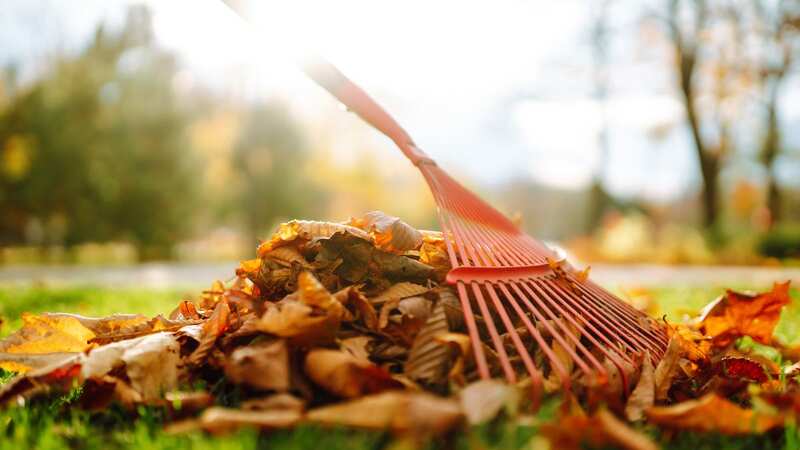Gardeners must complete November job to avoid nasty 'rotting' in winter

For the green-fingered, autumn is definitely an important time of year, and there are plenty of tasks to be getting on with in your garden. From protecting tender plants, to planting bulbs so you will be able to enjoy a glorious set of blooms in the spring, there is enough to keep you busy to say the least.
However, one expert has warned that one job should definitely not be neglected this November, because it could lead to a nasty amount of rotting that has the potential to cause damage to the centrepiece of your green space - the lawn itself.
The expert - David Mitchell, a buying manager from Homebase - explained to the Express that fallen leaves that are left to decompose on your lawn need to be collected: "You've got to keep it tidy and rake those leaves, this will prevent rotting and give it plenty of light and air to survive the frost." Once this task is done it gives you an opportunity to reinvigorate your lawn before the winter, explains Mitchell. "Next, it's time to sow some lawn seed, it germinates brilliantly in autumn and will give the roots time to establish before it gets too cold."
Fallen leaves can damage your lawn in a few ways, according to some turf experts. The first is that it can "by starving it of much needed light and air," which can quickly lead to bare patches of lawn, according to Lawntech. Secondly, piles of rotting fallen leaves can also lead to the promotion of diseases, which is something you definitely want to avoid.
Finally, it will also encourage moss to grow beneath the fallen leaves, which does have many environmental benefits, according to the experts at Kew Gardens. However, the Royal Horticultural Society note that it also can mean that your lawn may gain an "uneven colour and surface, and loose moss can make the lawn feel spongy under foot," which may not be what you want.
 Mystery as hundreds of tiny fish wash up dead on UK beach leaving locals baffled
Mystery as hundreds of tiny fish wash up dead on UK beach leaving locals baffled
If you don't mind a mossy lawn, this may not present much of an issue, as the Royal Horticultural Society point out: "If your grass is thin or patchy, moss can keep the lawn green and soft to walk on, and it creates a valuable habitat for small invertebrates," but collecting fallen leaves can minimise this potential issue and the others listed above, before they even arise.
Once you've collected the leaves that have fallen onto your lawn there are a couple of things you can do with them, including making leafmould, which expert horticulturalist Monty Don calls "black gold" and encourages everyone to use a soil conditioner and compost - if you have a little patience. Don advises collecting the leaves and chopping them up with a lawn mower before leaving them to rot for two years until they become "lovely, friable, sweet-smelling soft material," that's rich with nutrients.
If you're not sure you want to dedicate the space and time to making this incredibly powerful compost, then you can simply bag the leaves up and dispose of them with your garden waste.
Do you have a story to tell? Email: [email protected]
Read more similar news:
Comments:
comments powered by Disqus































